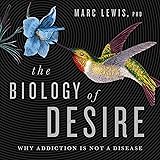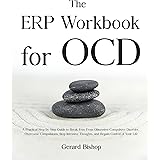A recent study by the Society for Human Resource Management found that 92% of employees believe self-awareness is critical for leadership effectiveness. This compelling statistic highlights the profound impact that understanding yourself has on personal growth and professional success. Developing self-awareness is indeed a foundational step for anyone striving to improve various aspects of their life.
As discussed in the accompanying video, self-awareness forms a vital part of your overall identity. It enables significant progress whether you are focusing on academics, improving consistency, managing your time, or strengthening personal relationships. Embracing this crucial self-knowledge allows individuals to truly step up and become their best selves.
The Two Dimensions of Self-Awareness: Internal and External
Understanding yourself comprehensively involves recognizing two distinct yet interconnected dimensions of self-awareness. These aspects provide a complete picture of who you are and how you interact with the world around you. Both internal and external awareness are essential for holistic personal development.
Cultivating External Self-Awareness
External self-awareness refers to how well you understand how other people perceive you. This includes your physical appearance, your demeanor, and your impact on others. Many people mistakenly believe they accurately perceive their external image.
However, research indicates that there can be a significant gap between self-perception and how others view us. For instance, a study published in the Journal of Personality and Social Psychology found that individuals often underestimate their positive traits, while also overestimating their perceived flaws. Being truly externally self-aware means having an honest assessment of your appearance, accepting both perceived flaws and strengths without letting external opinions dictate your self-worth. This acceptance fosters resilience against negative judgments.
To develop this, one must acknowledge their physical attributes, embracing what makes them unique. For example, recognizing a particular physical trait and understanding its neutrality helps to disarm criticism from others. It allows you to build a robust sense of self that is less susceptible to external validation or criticism.
Deepening Internal Self-Awareness
Internal self-awareness involves a profound understanding of your inner world—your values, passions, aspirations, thoughts, feelings, strengths, and weaknesses. This deeper introspection helps you understand why you react in certain ways and what truly motivates you. A study by the Harvard Business Review reported that internally self-aware individuals tend to be more satisfied with their jobs and relationships.
This type of awareness is crucial for knowing your capabilities and limitations. Understanding what makes you excited, what frustrates you, and what truly makes you thrive can significantly impact your decision-making. It enables you to align your actions with your core values and pursue goals that genuinely resonate with your authentic self.
For example, knowing you are a resilient person means you can tackle challenges with confidence, even when faced with adversity. Conversely, understanding a tendency towards procrastination helps you implement strategies like accountability partners or strict deadlines to ensure project completion. This inner knowledge becomes a powerful tool for personal effectiveness.
The Profound Benefits of Heightened Self-Awareness
Developing a strong sense of self-awareness offers a multitude of benefits that permeate every area of your life. Individuals who invest in understanding themselves often experience remarkable improvements. From better relationships to enhanced emotional control, the advantages are transformative.
Improving Emotional Regulation and Resilience
When you are internally self-aware, you gain a better grasp of your emotions and their triggers. This insight is foundational for emotional regulation, allowing you to manage impulses and reactions more effectively. Research shows that individuals with higher self-awareness report lower levels of stress and anxiety.
Instead of reacting instinctively, you can pause, identify the emotion, and choose a more constructive response. For instance, if you know certain situations tend to anger you, you can consciously prepare strategies to handle them calmly. This proactive approach prevents impulsive outbursts and fosters greater emotional stability, contributing to overall well-being.
Fostering Healthier Relationships
Self-awareness is a cornerstone of healthy interpersonal relationships. Understanding your own needs, communication style, and emotional boundaries allows for more authentic and respectful interactions. People who know themselves better can communicate their needs clearly and avoid repeating patterns of toxic relationships.
Knowing your strengths helps you contribute positively to relationships, while recognizing your weaknesses allows you to ask for support when needed. It also enables you to understand that not every criticism is an attack, but often an opportunity for growth. This perspective cultivates empathy and fosters stronger, more fulfilling connections.
Boosting Consistency and Achieving Goals
Many people struggle with consistency, especially when the initial enthusiasm for a new endeavor fades. Self-aware individuals understand their personal motivational patterns and potential pitfalls. This knowledge allows them to design strategies that support their goals effectively.
For example, if you know you are not naturally a “finisher,” you can proactively implement external accountability measures. Telling trusted friends or colleagues about your commitments creates a sense of obligation that helps bridge the gap between starting and completing tasks. This strategic self-management dramatically increases your chances of success.
Maximizing Productivity and Performance
An acute awareness of your personal energy cycles and optimal working conditions significantly enhances productivity. Identifying the times of day when your mental focus is sharpest allows you to schedule demanding tasks during those peak periods. This personalized approach to time management can yield impressive results.
For instance, if your best mental hours are early in the morning, scheduling complex analytical work then will be far more effective than attempting it late at night. This strategic alignment of tasks with your natural rhythms prevents burnout and maximizes output. It transforms how you approach work, leading to greater efficiency and higher quality results.
Overcoming Low Self-Esteem
A lack of self-awareness often contributes to feelings of inadequacy and low self-esteem. When you truly understand your strengths, talents, and unique qualities, you begin to appreciate your inherent worth. This deep self-knowledge helps to build an unshakable confidence that transcends external validation.
By acknowledging your competencies and valuing your unique contributions, you stop “commonizing” the things that make you special. Recognizing your individual value helps you challenge negative self-talk and develop a more positive self-image. This internal shift empowers you to face the world with greater assurance and self-respect.
Practical Strategies for Cultivating Self-Awareness
Developing self-awareness is not an overnight process; it requires consistent effort and deliberate practice. Fortunately, several effective strategies can help you embark on this journey of self-discovery. Incorporating these practices into your daily routine will yield significant insights.
Journaling for Self-Reflection
Journaling is a powerful tool for self-reflection, providing a private space to explore your thoughts and feelings. Dedicate a specific time each day to write freely, without judgment or inhibition. This practice helps you identify patterns in your emotions, reactions, and decision-making processes.
Consider using guided prompts to deepen your reflection. For example, ask yourself: “What made me feel strong today?” or “What triggered a negative reaction in me, and why?” A study published in the British Journal of Health Psychology suggested that expressive writing can lead to improved mood and increased well-being. Regular journaling helps you externalize your internal experiences, making them easier to analyze and understand.
Exploring Personality and Temperament Tests
Personality and temperament tests offer structured frameworks for understanding your inherent traits and behavioral preferences. Tools like the Myers-Briggs Type Indicator (MBTI), Big Five personality test, or DISC assessment can provide valuable insights into your natural inclinations. These tests reveal how you process information, make decisions, and interact with the world.
While not definitive labels, the results can serve as a powerful starting point for self-exploration. For instance, if a test reveals you are an introvert, you might understand why social gatherings can be draining, allowing you to better manage your energy. The insights gained can help you leverage your strengths and navigate potential challenges more effectively.
Seeking and Accepting Feedback
External self-awareness heavily relies on understanding how others perceive you. Actively seeking feedback from trusted friends, family, or mentors can provide invaluable external perspectives. This feedback, especially constructive criticism, offers a mirror to your behaviors and their impact.
Listen openly without becoming defensive, and ask clarifying questions to truly understand their point of view. A survey by LinkedIn found that 94% of professionals believe that receiving feedback is crucial for career development. While not every piece of feedback is universally accurate, consistent themes can reveal blind spots and areas for growth that you might not have recognized on your own.
Practicing Mindfulness and Meditation
Mindfulness is the practice of being present and fully aware of the current moment, without judgment. Meditation techniques often train this capacity, helping you observe your thoughts and feelings as they arise. This practice cultivates a detached perspective, allowing you to recognize emotional triggers before they escalate.
Regular mindfulness practice, even just for a few minutes daily, enhances your ability to notice internal states and external stimuli with greater clarity. Research from Harvard Medical School indicates that mindfulness meditation can reduce stress and improve self-regulation. It is a powerful technique for calming the mind and developing a deeper connection to your inner experiences, thereby strengthening your self-awareness.
Identifying Your Core Values
Your core values are the fundamental beliefs that guide your life and influence your decisions. Taking time to identify what truly matters to you provides immense clarity and direction. When your actions align with your values, you experience greater satisfaction and purpose.
Consider listing ten things that are most important to you, then narrowing them down to three or five core values. For example, honesty, compassion, innovation, or financial security could be guiding principles. Understanding these values helps you make choices that are authentic to you, whether in career, relationships, or personal pursuits. This alignment is a profound aspect of strong self-awareness.
Developing self-awareness is a continuous journey, not a destination. It is a commitment to understanding the intricate tapestry of your inner and outer self. As you consistently apply these strategies, you will uncover profound insights that empower you to live a more intentional and fulfilling life. This deep understanding of self-awareness fundamentally transforms your personal growth trajectory, helping you truly bloom.








